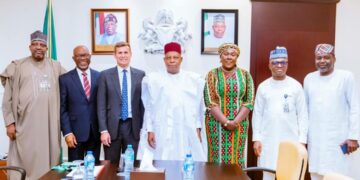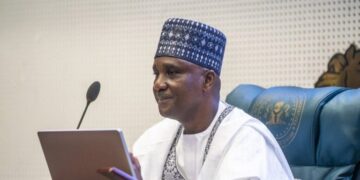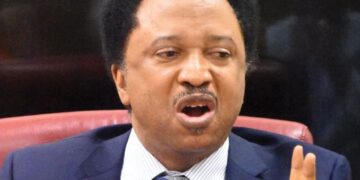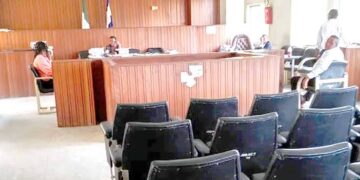By Beatrice Gondyi, Bauchi
As Bauchi prepares for Eid-el-Kabir, the city’s livestock markets present a more subdued atmosphere compared to previous years. Well-fed rams and cows stand in pens, awaiting buyers who have been slower to arrive than in previous seasons.
The cherished tradition of sacrificial slaughter, central to the Muslim festival, faces an unusual phase this year as shifting economic conditions have led to higher prices for livestock.
At the Bauchi Central Livestock Market, traders sit idle: prices of livestock have skyrocketed, leaving even middle-income earners struggling to participate in the ritual. A ram that sold for N65,000 and above last year now costs between N150,000 and N300,000, while cows are priced between N400,000 and a staggering N1.5 million.
The situation is particularly dire for livestock traders, who invested heavily in anticipation of the usual surge in demand ahead of Eid. When Spear News visited the markets, many traders expressed frustration as buyers remain scarce.
Zubairu Abubakar, a seasoned trader at the market, shook his head in frustration as he recounted the challenges of this year’s sales. “Honestly, the animals are very expensive, and people simply don’t have the money to buy them,” he says. “Many come to inquire about prices, but very few can afford to make a purchase. Some are still waiting for their salaries, and until then, business will remain slow.”
Abubakar explained that in previous years, groups of people would pool resources to buy a cow together, a common practice that made the sacrifice more affordable. But even this arrangement is proving difficult now. “People still gather in groups, sometimes up to ten individuals, to negotiate for a single cow, but the money just isn’t there,” he says. “Our biggest challenge is that sales haven’t picked up at all. Maybe things will change once salaries are paid, but time is running out.”
Umar Ibrahim Adamu, another trader, echoed these concerns. He has stocked his pens with healthy animals in anticipation of the festive rush, but so far, there have been no takers. “We are fully prepared for Layya (Eid-el-Kabir), but the sales just aren’t coming,” he lamented. “The economy has made it impossible for people to afford what they could easily buy last year. Everything has become more expensive, animal feed, transportation, even basic necessities. Nothing is cheap anymore.”
Adamu recalled how, in previous years, animals would sell out within days of arriving at the market. This time, however, many of his rams and cows have been in the pens for over a month with no serious buyers in sight. “Sallah is barely a week away, and the market is still empty,” he said. “This has never happened before. Normally, by now, most of the animals would have been sold, but this year, people are really struggling.”
The traders place much of the blame on the federal government’s economic policies, particularly the removal of fuel subsidies, which sent transportation and production costs soaring. They argue that without intervention, the situation will only worsen, leaving ordinary Nigerians unable to partake in religious and cultural traditions that have long been a source of unity and joy.
“The government needs to step in and find ways to ease the burden on the common man,” Abubakar said. “The removal of the fuel subsidy is at the root of all these problems. Prices keep rising, and people’s incomes remain the same. How are we expected to survive?”
Adamu adds his voice to the plea for government assistance, pointing out that traders, like many other Nigerians, are facing unprecedented hardships. “Many of us have invested everything into this business, and now we’re on the verge of bankruptcy,” he says. “The government has the power to help—whether through subsidies, price controls, or financial support. If nothing is done, not only will this Sallah be difficult, but the future looks even bleaker.”












































Discussion about this post